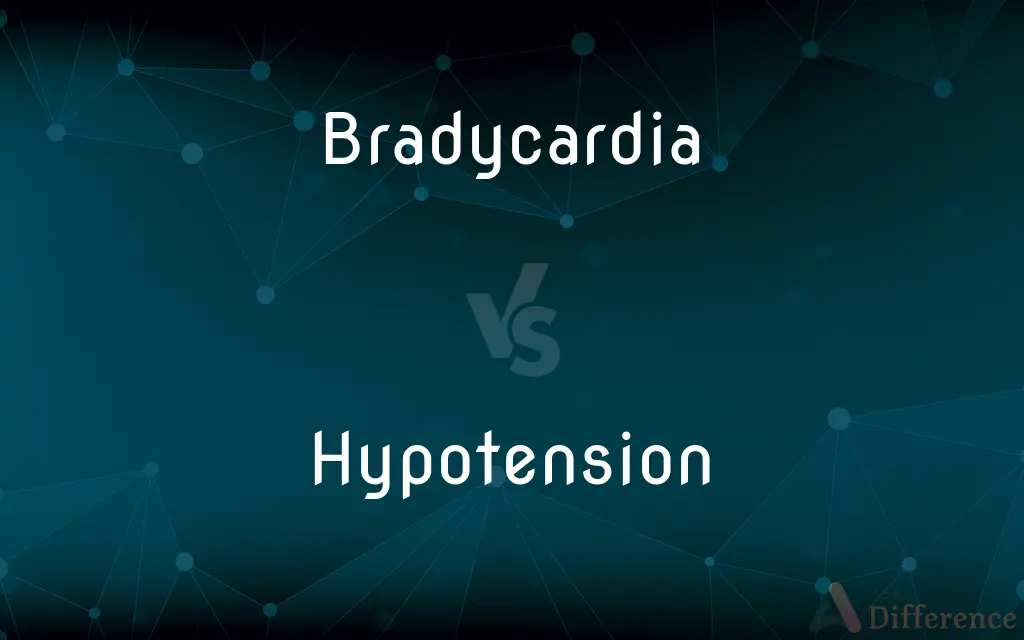Bradycardia vs. Hypotension — What's the Difference?

Difference Between Bradycardia and Hypotension
ADVERTISEMENT
Compare with Definitions
Bradycardia
Bradycardia is a condition typically defined wherein an individual has a resting heart rate of under 60 beats per minute (BPM) in adults, although some studies use a heart rate of less than 50 BPM. Bradycardia typically does not cause symptoms until the rate drops below 50 BPM. When symptomatic, it may cause fatigue, weakness, dizziness, sweating, and at very low rates, fainting.During sleep, a slow heartbeat with rates around 40–50 BPM is common, and is considered normal. Highly trained athletes may also have athletic heart syndrome, a very slow resting heart rate that occurs as a sport adaptation and helps prevent tachycardia during training.The term "relative bradycardia" is used to refer to a heart rate that, although not actually below 60 BPM, is still considered too slow for the individual's current medical condition.
Hypotension
Hypotension is low blood pressure. Blood pressure is the force of blood pushing against the walls of the arteries as the heart pumps out blood.
Bradycardia
Abnormally slow heart action.
Hypotension
Abnormally low arterial blood pressure.
Bradycardia
Slowness of the heart rate, usually fewer than 60 beats per minute in an adult human.
ADVERTISEMENT
Hypotension
Reduced pressure or tension of a body fluid, as of the intraocular or cerebrospinal fluids.
Bradycardia
(medicine) The condition of having a slow heartbeat, defined as under 60 beats per minute for an adult.
Hypotension
(pathology) The disease or disorder of abnormally low blood pressure.
Bradycardia
Abnormally slow heartbeat
Hypotension
Abnormally low blood pressure
Share Your Discovery

Previous Comparison
Horn vs. Bugle
Next Comparison
Coulomb vs. Faraday













































